The Power of Touch, Epigenetics and beyond!
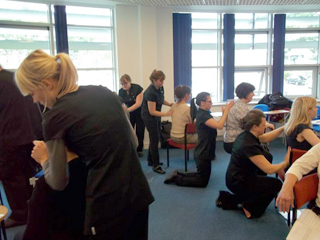 An interesting title and one of the first things I must do is to explain the connections, but first let’s link up with my last article. We had discussed the benefits of massage and how even just a fifteen-minute massage over clothes can be advantageous in reducing stress or energising those who felt tired. These findings were produced through a small research study using Treliske staff.
An interesting title and one of the first things I must do is to explain the connections, but first let’s link up with my last article. We had discussed the benefits of massage and how even just a fifteen-minute massage over clothes can be advantageous in reducing stress or energising those who felt tired. These findings were produced through a small research study using Treliske staff.
Other research conducted by the MIND organisation shows that in the workplace businesses lose an estimated £26 billion each year in sickness absence and lost productivity. With greater awareness and mental health support, they said businesses could save one third of these costs – ‘a mammoth £8 billion a year’.
In 2008 The European Network for Workplace Health Promotion stated that – for every 80p spent on health promotion and intervention programmes, £4 can be saved due to reduced absenteeism, temporary staff and improved motivation. What is it about massage, included as part of the interventions that makes such a difference in our day-to-day lives?
Previously we have talked about the effect of stress on the body as hormone changes enable us to cope with a fight or flight response. The question is: how powerful is the brain and can we consciously control these responses?
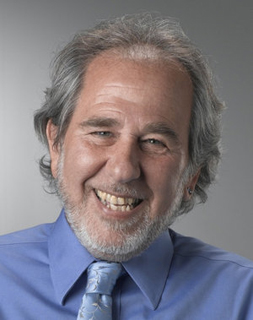
Epigenetics is a new revolutionary science that explains how genetics is not the only factor that shapes our traits, behaviours and attitudes to life’s experiences. ‘Epi’ means above or beyond. Bruce Lipton a cell biologist has been involved in this research for more than twenty years. He started with cloning stem cells over 40 years and found out how changes made to their environment within their culture dish affected the development and survival of the cell.
When he took the chemicals released by the brain when feeling loved and safe – dopamine, vasopressin, oxytocin and growth hormone; the cells did as you might expect and grew exuberantly well. Then he explains that if he added those released by the brain when something has scared you – cortisol, inflammatory and stress agents; these would cause the cells to shut down growth and the cells would begin to die. So he found two different chemical compositions that can result in two different biologies.
Going back to genetics Lipton explains that when he first learnt about genetics the perception was that a set of genes from our mother and father come together and are handed down; they unfold and control our traits and behaviours. We also know that over the first few years of life especially, we pick up behaviours through observation and learn attitudes and rules from those around us to be produce accepted behaviours. But Lipton explains that Genes are like blueprints that have to be selected by an action.
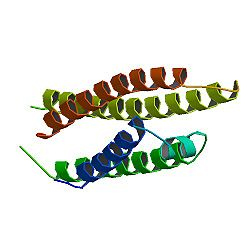
This action is controlled by our perception of the environment and this is where we can master and control our mechanical biology. The range of responses available can be shown by the perception of two individuals seeing a snake appear in front of them. If one is from Australia and recognises the friendly snake it often sees in the garden compared to the European who hasn’t seen one before but has heard grim stories about the ones with poisonous venom; you can see how perception can affect the form the chemical rush takes and the mechanical biology it produces.
In February, BBC Horizon brought to light the benefits of the placebo and the effect the brain has on believing that the individual is being looked after and given the resources it needs to be well. Interesting research showed how a gentleman who had Parkinson Disease starting to produce his own natural supply of dopamine after being given a placebo pill; even though it is a lack of this chemical that produces the symptoms. The response they say was short lived but it still shows the power of the mind and one’s perception of the environment.
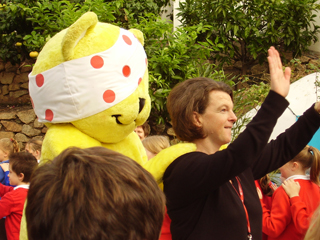
Massage in School’s Programme (MISP) brings us back to mixing the power of positive touch with the production of Oxytocin. Studies have shown that, when children give clothed massage to each other, they become calmer, concentrate better and have more confidence. They learn to respect themselves and other children. Each child gives permission for massage to take place. If children do not want to give or receive massage they sit, watch and enjoy the Oxytocin release that naturally fills the room during this experience.
This programme became well known in Cornwall in 2007 when we were able to create collaboration with 13 regional primary schools who helped bring a total of 258 pupils together at the Eden project to raise money for Children in Need. Mary Gander, the Regional MISP trainer at the time and I called it the Children in Need Circle of Massage and we had two enormous circles around Pudsey Bear in the Mediterranean Biome and he joined in! The atmosphere was superb and the children performed brilliantly. I was so proud of the way the children represented their school during the day and how other children would benefit from their achievements through sponsorship or showing others the massage routine for the first time.
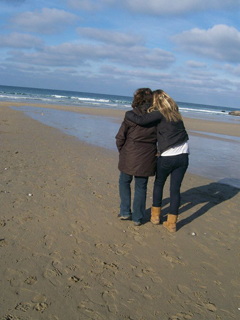
The benefits of positive touch continues to be recognised. On January 21st this year I spotted that National hug Day was celebrated to boost those with low spirits between the festivities of Christmas, New Year and Valentines day. The idea of this is to encourage everyone to hug family and friends more often. Zaborney, an American Reverend who devised this event in 1986 suggests asking first if one is unsure of the response. But whether you hug a family member, a friend or a stranger the mental and physical health benefits are the same. Studies have shown Hugging can help build a good immune system, decrease the risk of heart disease, and decrease levels of the stress hormone cortisol; as we have discussed already.
I would like to thank The National Institute for the Clinical Application of Behavioural Medicine NICABM a provider of continuing education for health and mental health care professionals delivering programs that have stimulated many interesting discussions recently between me, my friends and family that led me to think that some of these views might be of interest you. It has certainly helped me to consider my attitudes and behaviours and that change and new perspectives are healthy and invaluable for an interesting future.
Best wishes for a continued Happy and Healthy 2014
Sarah Greenhalgh

